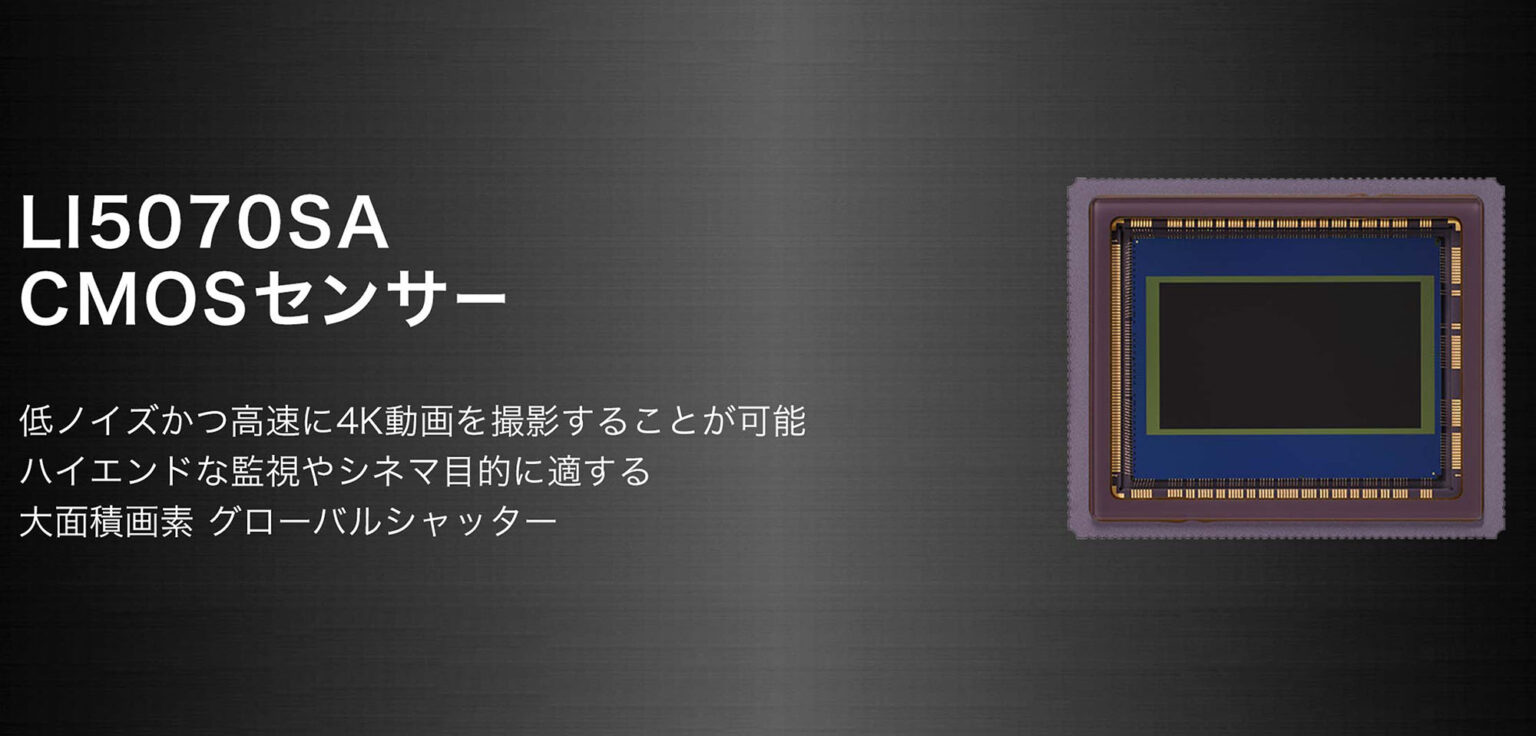Canon has placed the LI5070SA sensor on its website for third-party sales. This is a super-35-sized sensor (slightly larger than APS-C) at 27.4 x 15.3mm dimensions. On its website, Canon also has a full-frame global shutter sensor, the LI5030SA, which is a 19MP full-frame Global shutter sensor.
With the LI5070SA’s crop factor of 1.34x, there is a good chance that it is just a scaled version of the full-frame sensor as 19M scales down on a 1.34 crop to 10.5MP, making it suspiciously close to the 10.3MP size.
It’s quite possible that the industry didn’t want the full-frame sensor as much as the smaller and, thus, also cheaper Super-35-sized sensor.
The sensor is capable of DCI 4K video at 60 fps.
With Canon moving to full frame for most of its cinema line, it’s unknown if this will end up in a Canon camera. However, most of the sensors that have gone on Canon’s third-party sales never ended up in actual Canon cameras after being offered, so I would suspect this one is the same.

It suggests that Canon could easily produce an APS-C Global Shutter Sensor at volume if they are confident enough to create one for external third-party sales.
For more information on Canon’s sensors for third-party applications, you can visit the Canon USA website (They haven’t gotten around to the LI5070SA at the time of this writing)
Source: Canon Japan
|
When you purchase through links on our site, we may earn an affiliate commission. Here's how it works. |


I do astrophotography with dedicated cooled cameras for astro, and I've seen tons of Sony sensors (I have two cameras with them) but I've never seen a Canon sensor in an astro-camera.
CMOS Sensors for Industrial Vision | Canon USA
I'm definitely not in the market for a 250MP sensor :oops:. And it's only been the last few years that APS-C and FF sensor astro cameras have become relatively affordable. I have one APS-C camera and one that has a 13 x 8.8 mm sensor. For narrowband imaging, the cost of my filters was more than the cost of my APS-C camera, which is why I didn't go full frame.